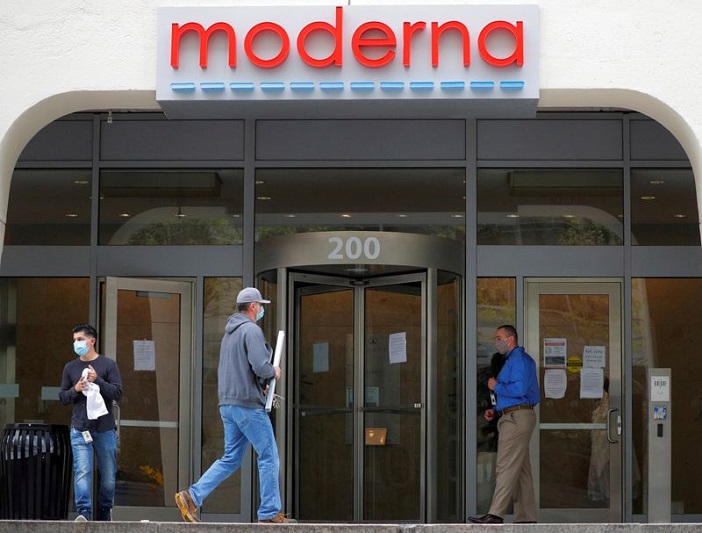OpenAI seeks government backing for AI chip investments
CAMBRIDGE, MA - Moderna, Inc. (NASDAQ:MRNA) has dosed the first patient in a Phase 1/2 study of mRNA-2808, its investigational mRNA-based T-cell engager therapy for relapsed or refractory multiple myeloma, the company announced Monday. The biotech firm, currently trading at $27.16 with a market capitalization of $10.6 billion, is making this move as its stock has declined over 34% year-to-date.
The initial dose was administered at SCRI Oncology Partners in Nashville, Tennessee, in collaboration with Sarah Cannon Research Institute. The clinical trial (NCT07116616) will evaluate the safety and tolerability of mRNA-2808 in patients aged 18 years and older with relapsed or refractory multiple myeloma.
According to the company, mRNA-2808 encodes three T-cell engagers targeting different myeloma-associated antigens, a strategy designed to address tumor heterogeneity and overcome resistance mechanisms.
"This is an important milestone as it is Moderna’s first T-cell engager therapy to be dosed in a patient," said Dr. Kyle Holen, Head of Development, Oncology at Moderna, in the press release statement.
Dr. Hans Lee, Director of Myeloma Research at SCRI and Hematologist at SCRI Oncology Partners, noted that multiple myeloma patients often develop resistance to available therapies, making sustained disease control challenging.
Multiple myeloma is a type of blood cancer that affects plasma cells in the bone marrow. The disease remains incurable for most patients, with many eventually becoming resistant to current treatment options.
Moderna’s mRNA platform allows for the simultaneous targeting of multiple cancer antigens, which the company suggests could potentially provide a more comprehensive approach to treating this complex disease.
The announcement represents Moderna’s continued expansion beyond infectious disease vaccines into oncology applications of its mRNA technology platform.
In other recent news, Moderna Inc. reported a significant decline in its Q2 2025 revenues, which fell to $0.1 billion. This represents a 38% decrease in product sales compared to the same quarter last year. Despite this revenue drop, the company experienced positive developments in its vaccine pipeline and implemented strategic cost reductions. These factors contributed to the company’s ongoing efforts to stabilize its financial standing. Additionally, analysts have noted the company’s strategic moves, though no specific upgrades or downgrades were mentioned in the recent reports. Moderna’s focus on innovation and cost management remains a point of interest for investors. The recent developments highlight the company’s ongoing adaptation to market conditions. These updates provide a snapshot of the current state of affairs for Moderna.
This article was generated with the support of AI and reviewed by an editor. For more information see our T&C.
